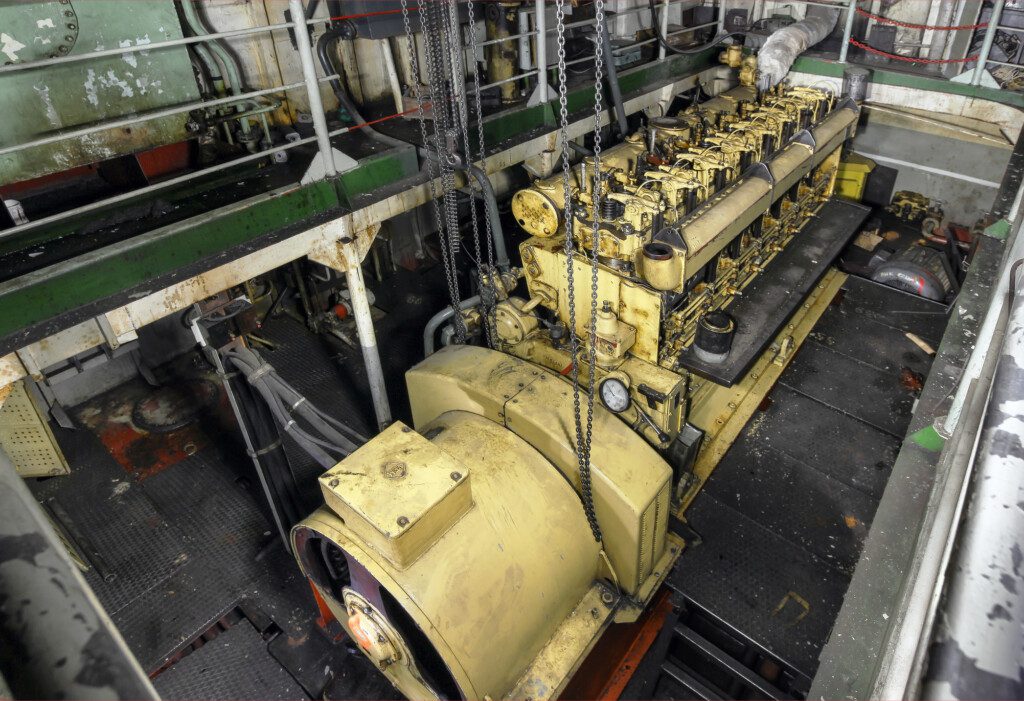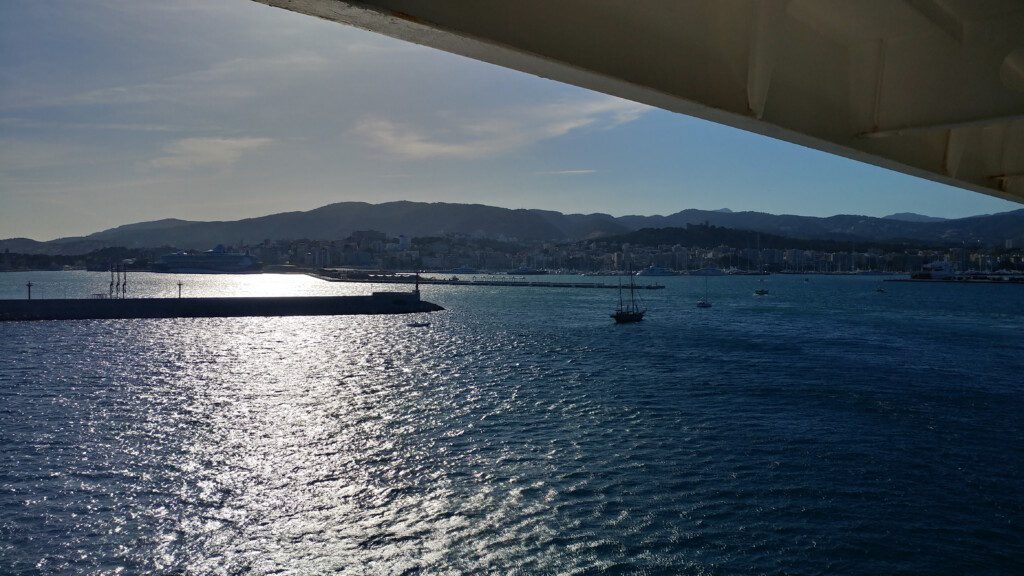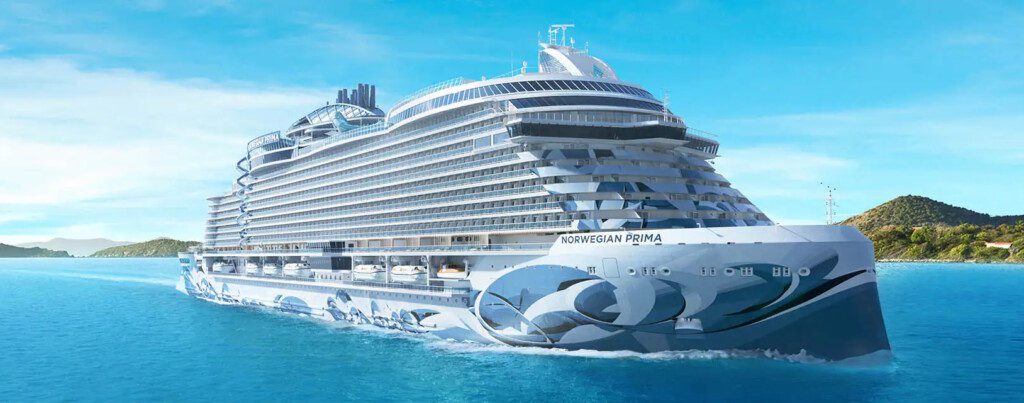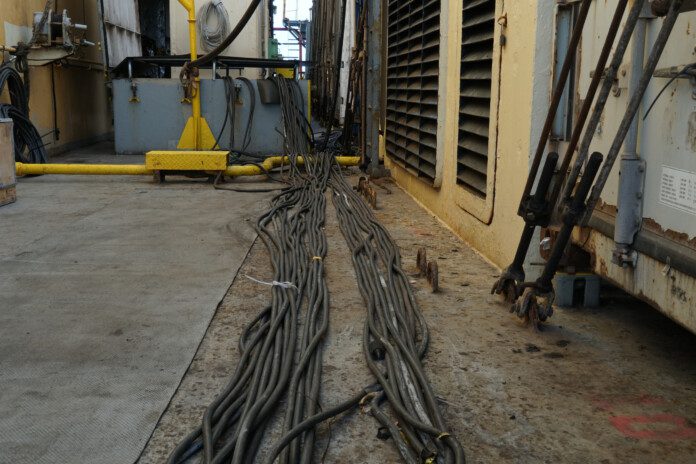As an Amazon Affiliate, we may earn a commission on eligible purchases made through our referrals. Advertiser Disclosure: Frequent Floaters is part of an affiliate sales network and receives compensation for sending traffic to partner sites, such as CreditCards.com. Some or all of the card offers that appear on the website are from advertisers. Compensation may impact how and where card products appear on the site. This site does not include all card companies or all available card offers. Opinions, reviews, analyses & recommendations are the author’s alone, and have not been reviewed, endorsed, or approved by any of these entities.
If you have not been paying attention there is a trend that I see slowly spreading all over the world, that is, either ports flat out banning cruise ships or restricting them or, in many ways worse, pushing them to ports a LONG way away from the old major port city.
It is not like some in the cruise industry are making this situation better (yes I am looking at you ICON of the Seas) by having ships so big they are all but the equivalent of 2 or even 3 smaller cruise ships all on their own.
Another thing I want to head off before the comments fill up with folks yelling how environmentally horrid cruise ships are (as well as other mega ships) I don’t argue that point but when you consider places like Disney World has folks also creating tons of pollution by flying to and driving to the resort so it is not like ships are the only issue.
It is also important to remember history. The reason many of these sea-tied cities are as prosperous as they are is inexplicably linked to the sea and all the prosperity and commerce they have been gifted them for centuries. So I feel turning your back on that cash cow now is not the way to go.

So then what are the solutions? CruiseWestCoast.com has a great post sharing solid information about part one of the solution we are looking for and that is turning off the engines and hook up these floating hotels to shore power. They also point out that “most vessels now support shore power connections“! With ships going “quiet” while at port the burning of dirty fossil fuels issue goes away (how shore power is produced is another topic but not for this post).

The next fix is not pushing ships further away to, shall we say, “co-terminal” ports. Why? First off bussing thousands, or even tens of thousands, of cruisers from this remote port to the other city is not just bad for the environment but will result in less visitors to the main port city. Now that may be the end goal of some but the money they spend will instead flow to the new port city and build this as a new designation to spend vs. the old. Plus for the cruise lines some cruisers may choose other routes that they see as better value and aspiration than non-focused ports (cruise lines flat out lying and calling Tarragona as Barcelona is not gonna work for long when folks get wise for example).
The better choice is to more properly schedule ships arrival to balance the number of visitors to the ability of a city to absorb the level of cruise passengers. This may make some ports a bit more exclusive but that is not necessarily a bad thing and something those in logistics can solve. Beyond this, and yet another solution for cruisers, is using some of these over visited ports as end points could also help balance this with folks staying a few days after a cruise or arriving a few extra days before departure – both a win-win for those complaining.

There is yet another fix that my favorite cruise line NCL is embracing and that is limiting the size of the ships allowed to visit a given port. NCL with the PRIMIA class of ships has shifted from the trend of seeing how simply absurdly mega large ships can become to mid to reasonable size ships that can still yield strong profits for the lines and temper the impact of visitors to the port cities. I mean at what point are ships so massive that they should be the entertainment without ever going to sea (I think MJ will have something to say about that last comment soon 😉 )?
What do you dear readers think of my thoughts. Do you agree? Do you have better ideas to fix the issues facing us who love cruising over the next many years? – René

Advertiser Disclosure: Frequent Floaters is part of an affiliate sales network and receives compensation for sending traffic to partner sites, such as CreditCards.com. Some or all of the card offers that appear on the website are from advertisers. Compensation may impact how and where card products appear on the site. This site does not include all card companies or all available card offers. Opinions, reviews, analyses & recommendations are the author’s alone, and have not been reviewed, endorsed, or approved by any of these entities.
Responses are not provided or commissioned by the bank advertiser. Responses have not been reviewed, approved or otherwise endorsed by the bank advertiser. It is not the bank advertiser's responsibility to ensure all posts and/or questions are answered.


The problem with cruise ships isn’t the pollution. I can totally understand why localities would want a smaller number of higher-paying visitors rather relying on large cruise ships. The type of tourist that comes from large cruise ships tends to be, well, lower caliber. Dumping thousands of people into a small port town for a few hours can totally ruin what makes the place special in the first place. I’m on a cruise of the Adriatic right now on a small craft (40 passengers including crew) and the experience between the islands that are too small for large cruise ships and the destinations with large cruise ports is night and day. The smaller destinations have more locals, independent restaurants and shops, and are, quite frankly, far more charming and relaxing than the larger destinations with the same tourist markets and restaurants all serving the exact same crap.
I agree that banning ships from desirable ports is really bad for everyone concerned. But I do understand the burden put on certain cities by having 5000 tourists descend upon them in a short period of time. I do not like trying to sift through crowds of cruisers when walking around port cities. I like the amenities of the larger ships but tend to shy away from them. I like the idea of using shore utilities to run the ships while in port; much cleaner. I remember going to Dublin in 2006 and downtown was about 15 minutes from the port. Now, it’s about 45 minutes away since they changed docking ports.
The size of cruise ships has really gotten out of hand. No matter how organized the crew is, there will be lines and waiting for even the most basic of amenities. I recently had to wait 30 minutes to get a table in the main dining room, and we had reservations. I mainly cruise Norwegian and like the smaller ships because of the crowds. But Norwegian, I know, Rene’s preferred line, is letting the smaller cruise ships “go.” The buffet’s are poorly laid out with limited seating. On a transatlantic cruise from New York to London, we sailed on the Dawn and it was like cruising on a Carnival ship. Those in the know will understand. The Dawn is in serious need of a retrofit.
I like Frequent Floater posts and appreciate the way Rene keeps the good information flowing for we cruisers. Thanks.
John M. – NW Arkansas – a little bit of heaven
Coastal cities became prosperous because they were mercantilist hubs of trade – Not because they were ports for the thousands of least common denominator tourists rolling into town for 5 hours fora picture in Piazza San Marco while searching for tat in the rows of junk shops.
In Europe, cruise ships are a scourge and the further they’re kept from cities – the better! In the Caribbean, the picture is more mixed
I absolutely agree with Adam L – “The type of tourist that comes from large cruise ships tends to be, well, lower caliber. Dumping thousands of people into a small port town for a few hours can totally ruin what makes the place special in the first place.” I live in one of those small port towns and can tell you that we’d rather have a lower number of visitors who are here to experience our city, dine and stay over than the hordes that descend from their ship to browse not buy and who make more mess than positive impact.
I tend to agree with the low caliber of people on board and I understand the host cities frustrations, but snubbing that money is also a very dumb move. I think these cities that complain so much about the ships should do more on their side to police the situation instead of banning (Amsterdam)or pushing them further from the city center, maybe cruise companies should boycott those cities? Then you will hear them cry in less than 30 days!!! Cities tried to ban jet airplanes many decades ago and we all see how that worked out.